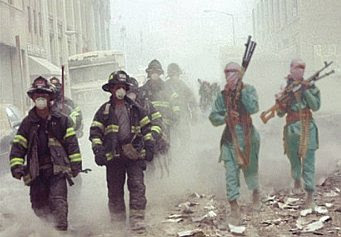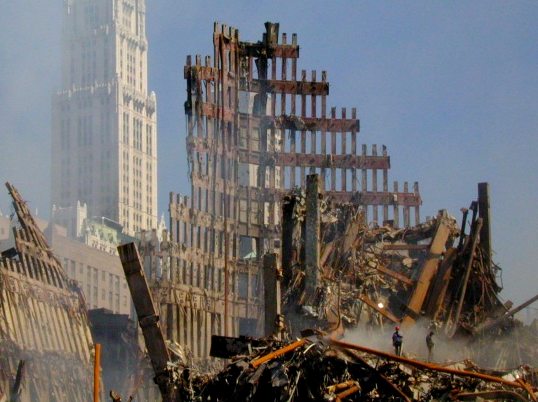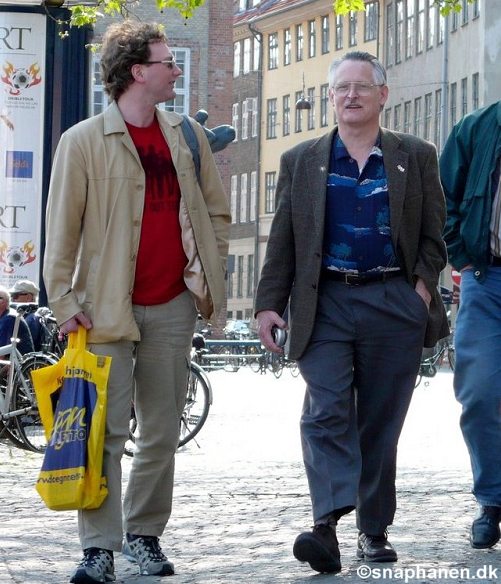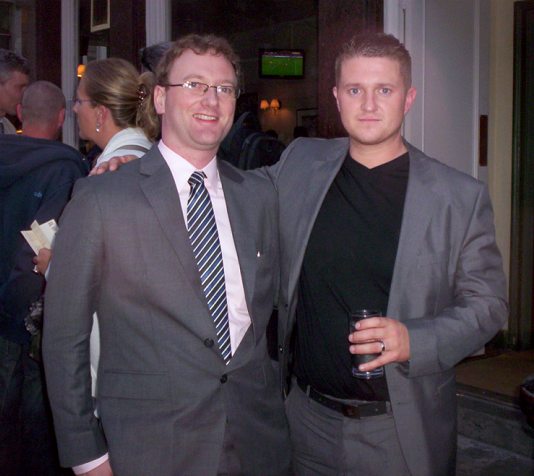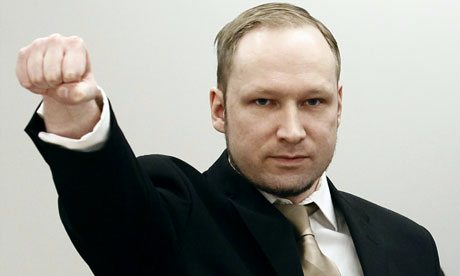Ten years ago I walked this street; my dreams were riding tall.
Tonight I would be thankful, Lord, for any dreams at all.
— Robert Hunter, from “Mission in the Rain”
Tomorrow is the tenth anniversary of the terrorist attack in Norway. On July 22, 2011, a man named Anders Behring Breivik detonated a truck bomb in central Oslo next to government headquarters, killing eight people. While police and emergency services were dealing with the aftermath, Mr. Breivik drove to the island of Utøya, where a summer camp for Socialist Youth was being held. There he methodically shot and killed sixty-nine teenagers with a high-powered rifle. When police finally arrived at the island, he calmly surrendered.
Anders Behring Breivik was a neo-Nazi, but that fact did not emerge until several years later, when he wrote a letter to multiple media outlets and admitted that his declared affiliation with the Counterjihad movement had been a strategic misdirection, to spare his Aryan nationalist comrades from persecution. That part of his letter to the media was widely ignored, and was never publicly reported by any major outlet. To this day he is widely identified as an anti-Islam ideologue.
Before he committed his atrocities, Mr. Breivik had arranged the media distribution of his manifesto, or as he preferred to call it, “the compendium”. It was a lengthy, rambling treatise. It contained some of his own writing, but most of it consisted of extensive quotes from various English-language writers, the most prominent of which were Fjordman and Robert Spencer of Jihad Watch.
Those writers and others mentioned in the manifesto became the focus of a media frenzy beginning the following morning. Progressive pundits applied their usual pseudo-syllogism to the Utøya massacre:
| 1. |
|
Breivik admired Fjordman. |
| 2. |
|
Breivik massacred innocent people. |
| 3. |
|
Therefore Fjordman was at least partially responsible for the atrocity. Q.E.D.
|
As I mentioned above, the Butcher of Utøya did not really look up to Fjordman; his admiration was a feint. So even the pseudo-syllogism was wrong. But none of that mattered; any information to the contrary was ignored by the left-wing media. Fjordman became an object of universal loathing. In Norway he was Public Enemy #1, in some ways eclipsing Breivik himself.
Up until that time Fjordman had only published his essays under a pseudonym. Beginning on the morning of July 23, the press and internet sleuths began an intensive effort to unmask him. It was only a matter of time before his real identity was uncovered, so after retaining counsel and making himself known to police, he outed himself via an interview with the tabloid VG. After that he fled the country and went into hiding.
And it’s a good thing he did: there were calls for him to be arrested and tried as Mr. Breivik’s accomplice, despite the fact that the two had never met, and Fjordman had never advocated violence in any form. But Norwegian public opinion did not bother itself with such trivial matters as facts and the truth. The slaughter on Utøya required a scapegoat, and Fjordman was chosen for the role.
He lived outside of Norway for a number of years, and only returned when the risk of arrest had diminished. However, he was unable to find work. Any prospective employer who was aware of who he was would refuse to hire him, and if he somehow found a job, even a menial one, he would be discharged as soon as his employer became aware of his identity. Now, ten years after the attack, he is living outside the country again, since he is unemployable in his homeland.
And, regardless of Mr. Breivik’s admission that his admiration for Fjordman was a ruse, Fjordman is still widely known as “Breivik’s mentor”.
* * * * * * * * * * * * * * *
I won’t go into the Breivik affair in great detail, since this is primarily a reminiscence about the effect the atrocity had on Gates of Vienna and the Counterjihad in general. To learn more, check out the archives for the period from July 22, 2011 to ca. November 2011. Or look up the relevant items in the Fjordman Files. The trial of Anders Behring Breivik sucked up a lot of our blogging oxygen in the spring of 2012; see Circus Breivik for a relevant sample.
Because Gates of Vienna was the main venue for Fjordman’s writings, and was mentioned repeatedly in the killer’s manifesto, this site was put under the media’s klieg lights beginning the day after the massacre. We were thrust into a prominence we had never seen before (or since). It was a hideous kind of fame that I would never have asked for — they say there’s no such thing as bad publicity, but my experience in the summer of 2011 makes me vehemently disagree.
In the first few weeks we received hundreds (maybe thousands) of emails. Some of them were simply requests for information, but they were mostly hate mail, sometimes in Norwegian and Swedish. Various media outlets wanted to contact Fjordman, and I dutifully passed the messages on to him, but he didn’t respond to any of them.
The number of comments at Gates of Vienna (which was still on blogspot at the time) rose into the hundreds for each post, many of them from obvious trolls and provocateurs employed by one or another state intelligence service. They soon became unmanageable, so we reluctantly closed the blog to comments for a couple of months. When we reactivated them, we made them subject to moderation, and they’ve been that way ever since. It’s frustrating and annoying for commenters to have to wait to see their contributions appear, but otherwise Dymphna and I would have been unable to cope with all the trolls and provocateurs.
By the beginning of the week following the attack, media outlets started contacting me. They somehow managed to obtain my phone number, and I received calls from newspapers in Norway and the UK. Needless to say, I declined to say anything to them.
During our fifteen minutes of lurid fame we were mentioned in The New York Times and The Washington Post, among other illustrious publications. The following report from the NYT told its readers that Anders Behring Breivik had commented on Gates of Vienna several times:
What they said was quite true. Fortunately, I had already been alerted to the fact by a European contact, who told me the pseudonym that had been used by Mr. Breivik, so I was able to track down all his comments. Some people urged me to delete them, but that’s not the way we do business here at Gates of Vienna. First of all, nothing ever disappears completely from the Internet; it can always be found in the Wayback Machine or other web archives. But more importantly, I don’t believe in hiding the truth, whether it makes me look bad or not. So I collected all of the Butcher’s comments and reposted them.
Other things published by major media outlets, particularly the British tabloids, were not as accurate. The Washington Post published my name and something about me that was completely, factually false. I sent them an email demanding that they retract and correct their error, but I knew that nothing would happen. All I could do was post about what they did and ridicule them. If I had been a famous movie actress or best-selling novelist who could afford to retain high-powered lawyers, I might have had more success. But the WaPo knows it has nothing to fear from minnows like me.
Other papers, especially the tabloids, published even more ludicrous falsehoods about Gates of Vienna — who we were associated with, where we got our funding, etc., etc. And they asserted various bogus things about other people in the Counterjihad whom I knew personally — so-and-so is funded by the Koch Brothers, or the Mossad, or whatever. Just absolute nonsense.
That summer taught me not to believe ANYTHING that I read in the media unless it is corroborated by multiple independent sources and has a breadcrumb trail that leads back to verifiable facts. Which doesn’t leave much. Reading media news reports has become a form of entertainment for me, like reading mystery novels or watching The Simpsons.
The general effect on the Counterjihad was catastrophic. A lot of sites, especially those in Europe, closed down for good. A number of Counterjihad activists I knew personally soiled their breeches and fled the field at the first whiff of grapeshot. I must admit that I became exasperated with them — I said, “You knew how serious this work was when you got into it. What did you think we were doing, playing tiddlywinks??”
However, in retrospect, I’ve had to acknowledge that they did what they had to do. Unlike me, most of them had day jobs. They stood to lose a lot if they were exposed. Some of them had families to support. I can’t judge them. They dropped out of sight, and I haven’t heard from them since.
A few people urged me to shut down Gates of Vienna. But my Scots blood comes to the fore at such times, and my natural response is defiance. I said, “F**K THAT S**T!” [emphasis in the original] and soldiered on. It was a rough time, and I didn’t get much sleep for the first couple of months. But we weathered the storm.
On the whole, however, it was a major setback from which the Counterjihad never fully recovered. The resistance to Islamization has never returned to the level of July 21, 2011. Freedom of speech has been eroded even further, and sharia is now de facto in force in much of the West.
Dymphna and I always thought that Anders Behring Breivik’s machinations had been guided and assisted by a certain three-letter agency with the assistance of Norwegian intelligence. His “compendium” was obviously in large part not his own work, and his selection of “mentors” was exquisitely chosen to do maximum damage to those who opposed Islamization, at the exact time when Secretary of State Hillary Clinton was in the thick of collaborating with the Muslim Brotherhood in what eventually became known as the “Istanbul Process”. Resistance to Islam was a thorn in her side, and Anders Behring Breivik helped remove it.
I don’t think mass slaughter was part of the plan, however — the Norwegians would never have co-operated with such an operation. I think the intention was to let Mr. Breivik put together his scheme, and then roll it up at the last moment before it was executed. There would have been a prominent arrest, followed by maximum media publicity for his manifesto.
However, just before the plans matured, Wikileaks released a damaging series of documents showing some of the things [agency name redacted] had been up to in Europe, which forced them to shut down their presence in the American embassy in Oslo and withdraw Mr. Breivik’s handlers. The Butcher of Utøya was then let off his leash, and the rest is history.
Whether mass slaughter was intended or not, the plan was a great success. The Counterjihad was hobbled, the spread of sharia proceeded apace, and the Obama administration became a servant of the Muslim Brotherhood. And the Biden administration is, in effect, Obama’s third term.
* * * * * * * * * * * * * * *
Before I close these remarks, I’d like to address an appalling issue that has emerged surrounding the mass murder committed by Anders Behring Breivik. When it first came up it was very distressing, but I’ve had ten years to get used to it. Now it’s just something that I have to endure whenever the topic is broached on this site.
In those early days I was shocked by the number of people who supported Mr. Breivik and considered him a hero for what he did. And I’m not talking about the neo-Nazis and Aryan supremacists, but more mainstream people who oppose mass immigration and hate socialism. Every time I post something about the Butcher of Utøya they pop up again and express their admiration for him.
I’m not going to tolerate such comments, and will delete them when they appear. You might as well spare yourself the effort. If you want, you can visit Storm Front and similar sites and make your remarks there, where you’ll get a sympathetic reception and find a lot of people who agree with you.
I’m familiar with the arguments that people make to justify their opinion: Mr. Breivik was targeting future socialists, who would otherwise have grown up and entered politics and invited even more of the Third World into Norway. But that’s a specious line of reasoning, in my opinion. The mass slaughter only hardened public opinion against those who oppose mass immigration, and made it even more difficult to restrain such immigration. Killing all those kids inspired no sympathy for the Aryan cause; it had the opposite effect.
But that’s just the practical, utilitarian argument against it.
Mr. Breivik’s strategy was a recapitulation of one of the major trends of the 20th century: the mass extermination of entire classes of people. For him it was Young Socialists. For Hitler it was Jews, gypsies, communists, homosexuals, and the feeble-minded. For Stalin it was counter-revolutionaries, “wreckers”, the bourgeoisie, kulaks, and Ukrainians. For Pol Pot it was the intellectuals. For the Hutus it was the Tutsis. For Muslims it was Jews, Christians, Hindus, and other infidels.
What all the architects of those atrocities have in common is that they considered it morally justifiable, and even laudable, to engage in the mass slaughter of people based on their membership in a particular class — a race, a social class, an occupation, a nationality, etc. Individuals meant nothing. Those who engineered the massacres were not required to determine whether their victims were guilty of any crimes, or even subscribed to a particular ideology. They were members of a class, and for that reason they deserved to die. Men, women, children, invalids, the elderly and enfeebled — all had to go.
That is a pernicious mindset, and I’ll have none of it. It was the bane of the 20th century, and we’ve no business extending it into the 21st.
I know the counter-arguments — we’re in a war, and war sometimes requires us to do horrible things, etc., etc. If we want to win, we have to grit our teeth and do what is necessary.
Well, if that’s what it takes to win, then I don’t want to win. I’ll go down to defeat rather than jump into that particular boxcar to hell.

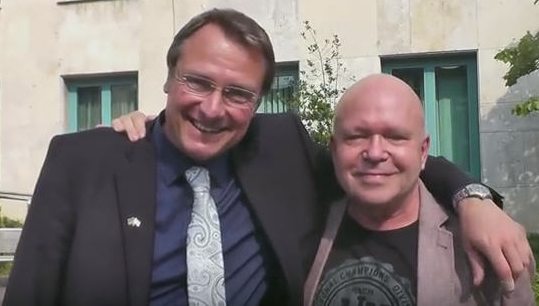






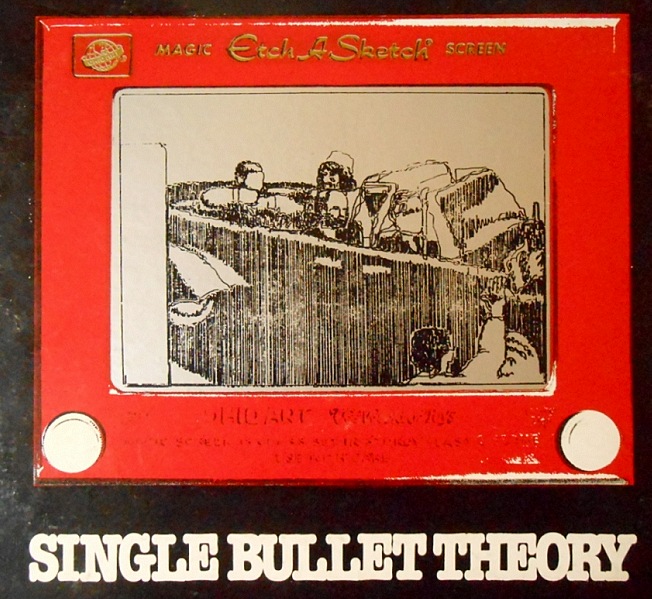
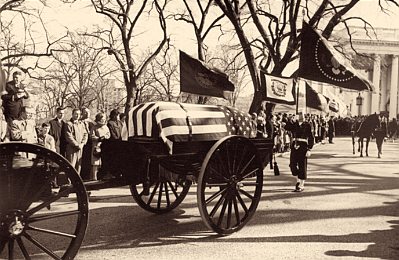
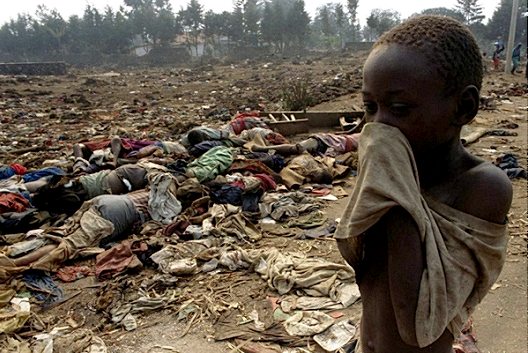

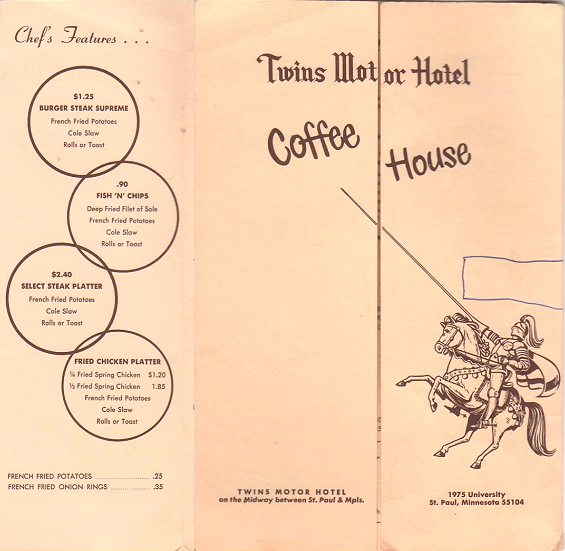

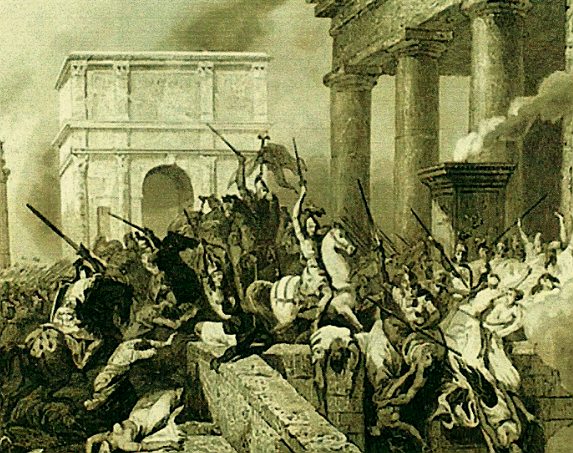


 I still remember what I was doing when I heard the news on that bright, cool September morning, and how the day subsequently unfolded, but I’m not going to write about all that — I’ve covered it too many times before. And I’ll stay away from the political sequelae, except to note that the way the Patriot Act was eventually abused was at least as bad as the most skeptical libertarians predicted, and probably worse.
I still remember what I was doing when I heard the news on that bright, cool September morning, and how the day subsequently unfolded, but I’m not going to write about all that — I’ve covered it too many times before. And I’ll stay away from the political sequelae, except to note that the way the Patriot Act was eventually abused was at least as bad as the most skeptical libertarians predicted, and probably worse. At first it seemed that a combination of ignorance and cluelessness had led to such foolhardy behavior, but as time went by — especially after the Islamophiles in the Obama administration got going full throttle — I realized that there was more than mere ignorance at work. Yes, there were plenty of ill-informed and stupid people at the upper levels of the government and the military, but John Brennan — just to pick an example — was not one of them. There was no way that he could have failed to understand exactly what the Muslim Brotherhood was up to. Thus we can only conclude that Islamization is part of the Deep State’s plan for the deconstruction of Western Civilization.
At first it seemed that a combination of ignorance and cluelessness had led to such foolhardy behavior, but as time went by — especially after the Islamophiles in the Obama administration got going full throttle — I realized that there was more than mere ignorance at work. Yes, there were plenty of ill-informed and stupid people at the upper levels of the government and the military, but John Brennan — just to pick an example — was not one of them. There was no way that he could have failed to understand exactly what the Muslim Brotherhood was up to. Thus we can only conclude that Islamization is part of the Deep State’s plan for the deconstruction of Western Civilization.